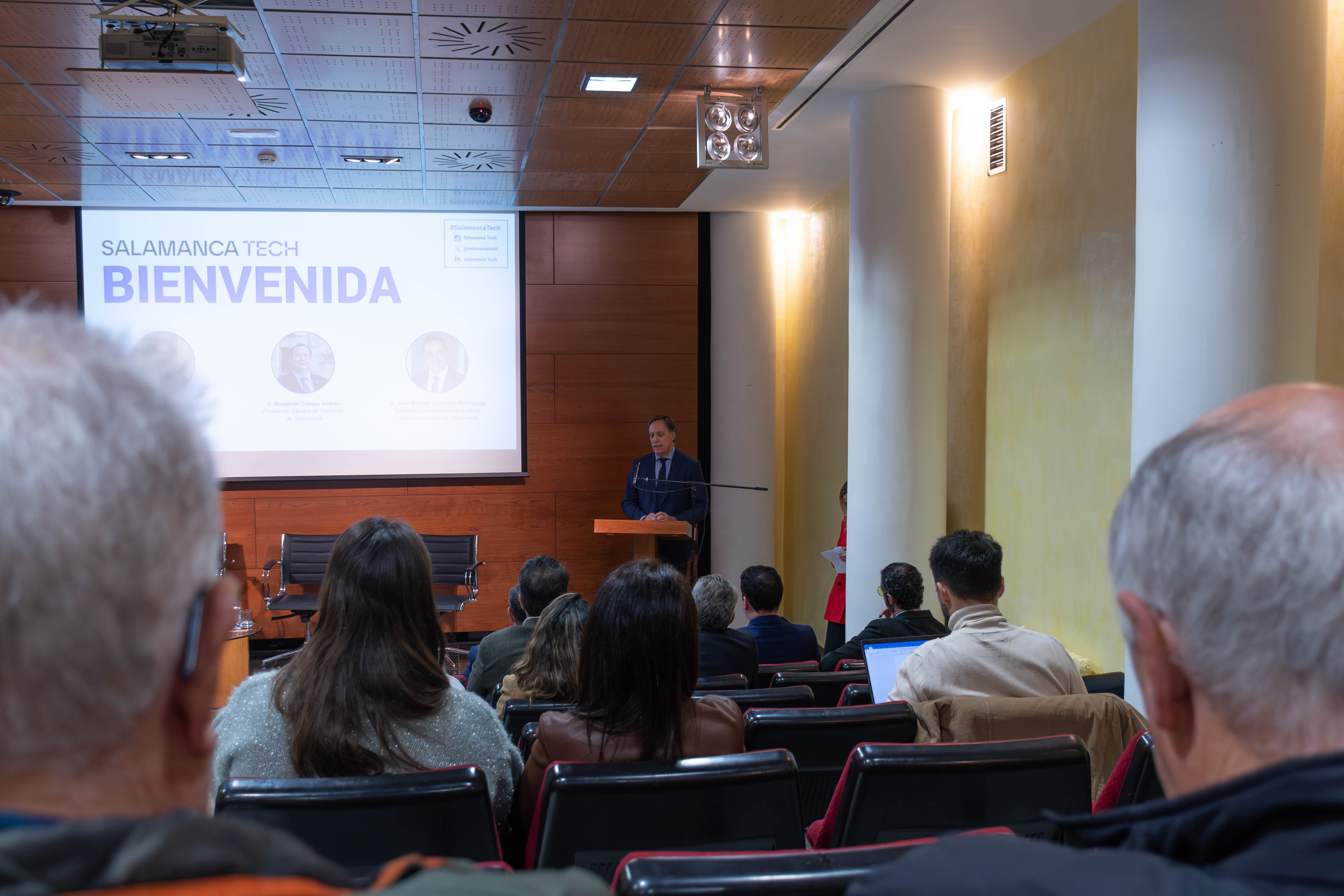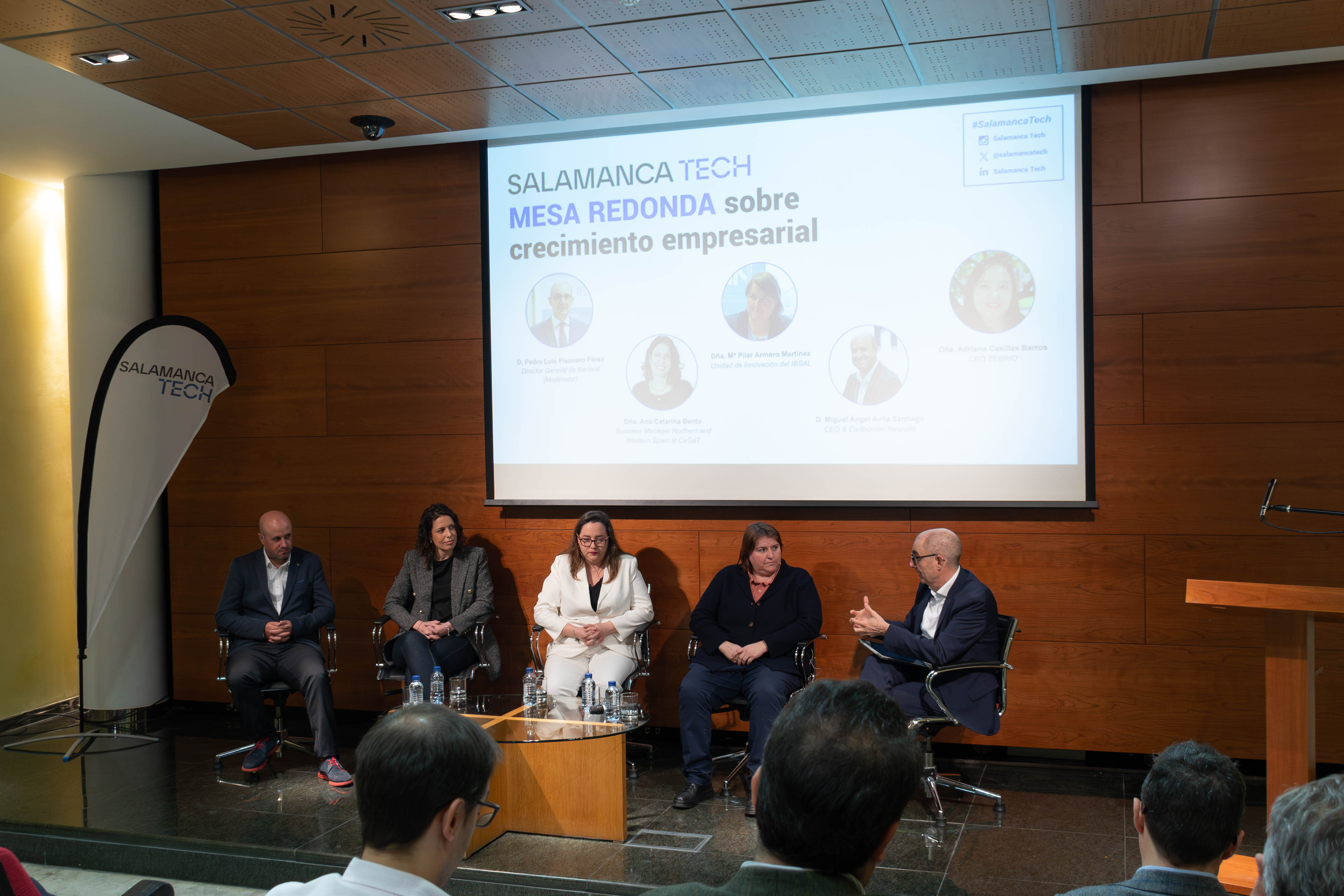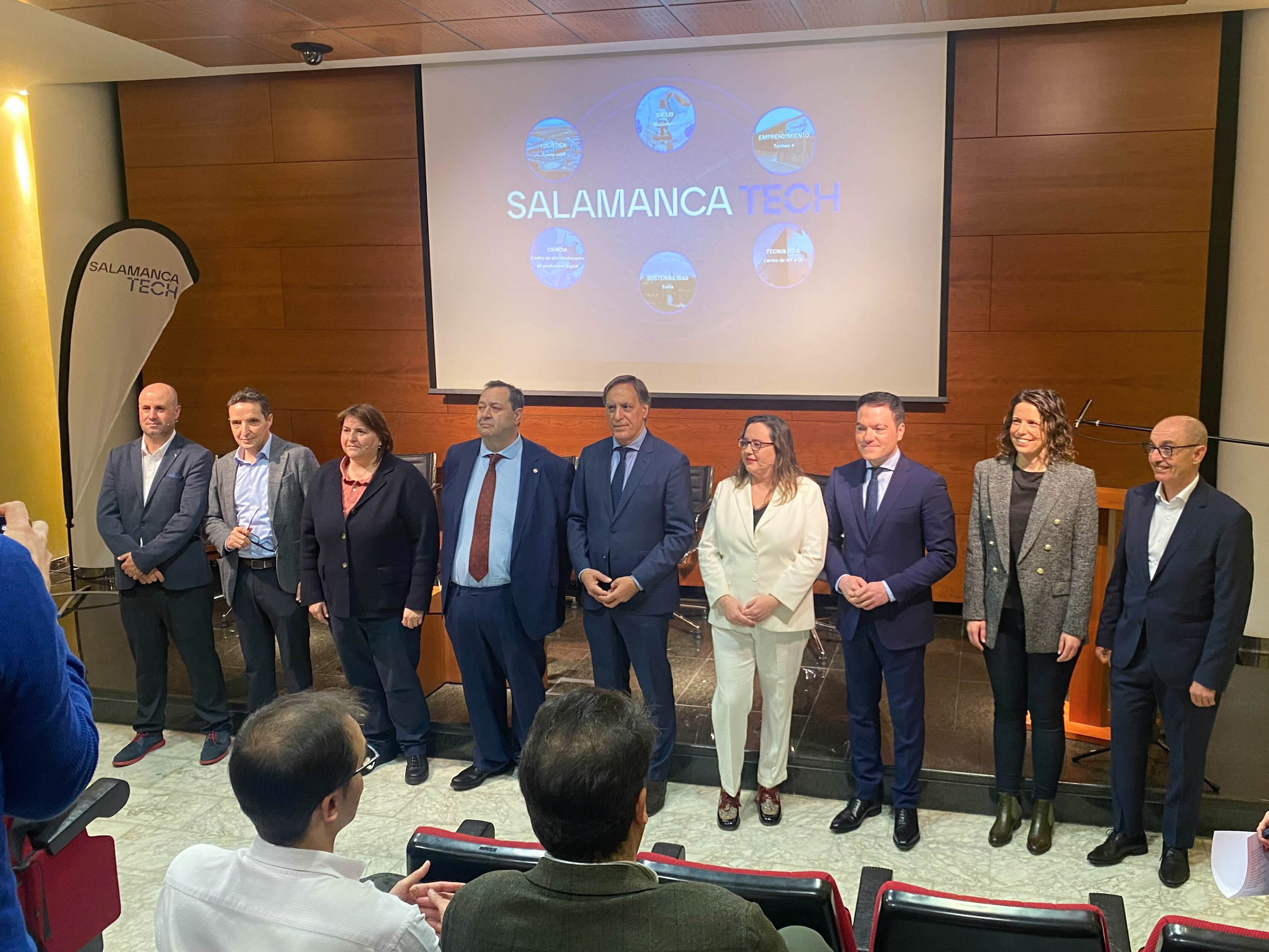Salamanca Tech showcases business opportunities in the city as a benchmark for biotechnology and innovation in Europe
Salamanca Tech has shown the business community all the opportunities that are opening up in the city as a biotechnology and innovation benchmark in Europe. The Mayor, Carlos García Carbayo, the President of the Chamber of Commerce, Benjamín Crespo, and the Professor of Computer Science and Artificial Intelligence of the University of Salamanca and the Director of BISITE, Juan Manuel Corchado, inaugurated the conference 'Salamanca Biotech: a growing business environment', which took place in the Chamber of Commerce of Salamanca and was aimed at companies in the province.

With the aim of connecting entrepreneurs, investors and businesspeople to create strategic alliances, the conference enabled them to learn about the potential of new technologies associated with science, health, sustainability, entrepreneurship and logistics. This was made clear at the roundtable moderated by Pedro Luis Pisonero Pérez, CEO of Iberaval; and made up of María Pilar Armero Martínez, from the Innovation Unit of the Institute of Biomedical Research of Salamanca (IBSAL); Adriana Casillas Barros, CEO of Tebrio; Ana Catarina Bento, business manager of CeGaT in the north and west of Spain; and Miguel Ángel Ávila Santiago, CEO and co-founder of Neurofix.
During the roundtable, the participants agreed on the intense work and technological growth taking place in Salamanca, which Pedro Luis Pisonero assured "is valued more outside than inside the city". Each speaker presented their work and the origin of their respective entities, providing insights into the needs for entrepreneurship and meeting the needs of the market, as well as the possibilities of financing.
Neurofix Pharma is one of the few companies in Spain that is in the clinical phase IIA of product development; Tebrio detected a global need on the animal feed market and worked at a legal level from Brussels to open the different markets, and the IBSAL is made up of hundreds of researchers who carry out their work in Salamanca and, according to Pilar Armero, "they need support to make their initiatives visible and to give rise to great projects and products". For her part, Ana Catarina Bento, a native of Porto, offered her vision of Salamanca as a city "with strong biotechnological potential and great support from the university". She also wanted to highlight the quality of life and "a strong entrepreneurial ecosystem that attracts people from abroad".

Mayor Carlos García Carbayo has highlighted the creation of wealth and employment through a scientific model based on knowledge, the bio-health industry, and the green economy, which comes from all the talent that exists in universities and research centres. Proof of this is that Salamanca was the province of Castilla y León with the highest growth in technological employment in 2023, according to the latest data published by the Cotec Foundation for innovation.
For his part, the President of the Chamber of Commerce, Benjamín Crespo, highlighted the work being carried out by the institution to promote and encourage the adoption of technological solutions in Salamanca companies through the different programmes they develop, and recalled the importance of public-private collaboration to "retain local talent, attract investment and position Salamanca as a real HUB of innovation in the technological and biotechnological field".
In this regard, Professor Juan Manuel Corchado underlined the importance of the University of Salamanca as a benchmark in biotechnology thanks to the boost given to the Institute of Neurosciences, the Cancer Research Centre, the Institute of Functional Biology and Genomics and the Biomedical Institute of Salamanca which, together with biotech companies, most of which are located in the Science Park of the academic institution, make up a powerful innovation ecosystem that will be boosted by the upcoming launch of the Abioinnova bio-incubator. "The creation of an innovative ecosystem, such as the one we are promoting through Salamanca Tech, not only attracts investment, but also facilitates the retention and attraction of talent", emphasised the Professor of Artificial Intelligence.

Infrastructures and industrial land to boost business development
Salamanca Tech is based on a network of infrastructures specialised in the transfer of R&D to the productive sector, with the capacity to promote the development of new companies born from academic projects with innovative potential, so that young people can develop their professional and personal life projects in the city.
This infrastructure network forms a knowledge triangle with ABIOINNOVA, the Biotechnology, Bioengineering and Health Business Incubator recently built on the new Agro-Environmental Campus in La Platina; the Centre for the Internet of Things and Artificial Intelligence, in operation in Puente Ladrillo; and in Chamberí the TORMES+ Training and Entrepreneurship Centre, which will be joined this year by the Technological Innovation Space, already under construction.
All this in a feasible environment for the transfer of knowledge, integrated by the hospital complex, the university campus, near the University Science Park, very close to the national ring road, the railway line and at the junction with the Intermodal Platform ('Puerto Seco') of Salamanca and the new industrial sector of Peña Alta.
This strategic location of Salamanca and the facilities offered by the City Council have led to an expansion of industrial land with a further 244,000 square metres next to the Transport Centre. The administrative procedures for what will be the Technology Park on the land of the former Mercasalamanca have also begun.